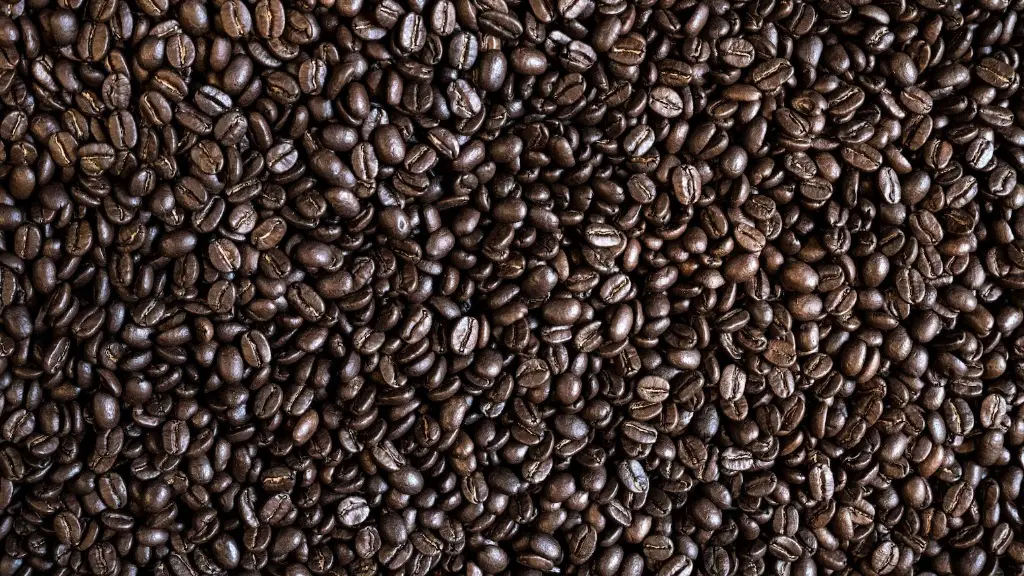Coffee is one of the most popular drinks in the world – it’s even been linked to health benefits! But it’s possible to drink too much coffee, which can lead to unwanted side effects like stomach aches. In this article, we’ll explore why this happens and how to manage the effects.
Caffeine is an addictive stimulant, meaning it can stimulate your body by raising your heart rate and increasing alertness. The more coffee you drink, the more of its stimulant effects your body experiences. When you drink too much coffee, like more than 3 to 4 cups per day, you’re likely to experience digestive distress and related stomach aches.
Experts suggest that drinking too much coffee is like drinking a caffeinated energy drink, as both contain stimulants. Caffeine can also irritate your stomach lining, leading to stomach aches and other uncomfortable symptoms. An excess of caffeine may also cause dehydration, as it acts as a diuretic, meaning it increases your body’s production of urine.
When it comes to the effects of coffee on your stomach, it’s important to remember that everyone is different. There are some people who are particularly sensitive to caffeine and may be more likely to experience digestive distress when they drink coffee. Also, people with certain medical conditions, such as irritable bowel syndrome, should avoid consuming too much caffeine as it can aggravate their symptoms.
In terms of managing stomach aches caused by too much coffee, the best strategy is to reduce your caffeine intake or switch to alternatives. You can try swapping out your regular cup of coffee for decaf, herbal tea, or green tea. Additionally, avoiding large cups of coffee can help keep your caffeine intake in check, so consider limiting yourself to smaller amounts via single serve cups or espresso shots. It’s also a good idea to drink plenty of water before, during, and after your coffee drinking session to help prevent dehydration.
Can Sugar in Coffee Cause Stomach Problems?
It’s possible that sugar and other sweeteners may contribute to digestive issues if you drink lots of coffee. While sugar itself isn’t necessarily a problem, it can add extra calories and carbohydrates to your drink, which can be hard on your stomach. Not to mention, sugary coffee drinks will often contain artificial additives, preservatives and other ingredients that could increase your risk of experiencing digestive distress.
It’s important to be mindful of the amount of sugar and other sweeteners you add to your coffee. Experts recommend limiting your intake of added sugar, so try to opt for plain black coffee or espressos when you can. Adding a splash of milk or cream is usually fine, but keep your portions to a minimum and use unsweetened varieties whenever possible.
Tips for Reducing Caffeine Intake
If you’ve been experiencing stomach issues due to drinking too much coffee, reducing your caffeine intake is a must. Here are some tips to help you cut back:
- Start by reducing the amount of coffee you drink each day until you find the right balance.
- Try drinking decaf or herbal teas. They have much less caffeine than coffee, yet still provide some of the same mental benefits.
- Opt for smaller coffees when you can. If you usually get large drinks, start by downsizing until your body adjusts.
- Don’t forget about hydration. Make sure to drink plenty of water throughout the day to help prevent dehydration.
- Try limiting your intake of energy drinks, as they can contain even more caffeine than coffee.
How Much Caffeine is Too Much Caffeine?
It’s hard to give specific guidelines on how much caffeine is too much, as everyone’s tolerance levels vary. Generally, up to 400 milligrams of caffeine per day is considered safe, though you may want to limit your intake to 200 milligrams or less if you’re pregnant. While adults can generally tolerate up to 400 milligrams per day, children and teens should consume much less than this.
Additionally, it’s important to remember that caffeine is an addictive stimulant and overconsumption can lead to unpleasant side effects. It’s best to stick to a moderate amount when possible, as this can help reduce your risk of developing unpleasant symptoms like stomach aches.
Common Signs of Caffeine Overconsumption
If you’re unaware that you’re drinking too much caffeine, it can be easy to overlook the warning signs. Some of the most common indicators that you’re drinking too much coffee include:
- Restlessness
- Headaches
- Anxiety
- Trouble sleeping
- Tremors
- Irritability
- Nausea
- Increased heart rate
- Stomach aches
- Diarrhea
Caffeine-Free Alternatives to Coffee
If you’re looking to swap coffee for something else, there are plenty of caffeine-free alternatives you can try. Here are some popular options:
- Chamomile tea
- Mint tea
- Ginger tea
- Matcha tea
- Apple cider vinegar
- Herbal coffee blend
- Turmeric latte
- Sparkling water
Can Coffee Help with Digestive Issues?
Coffee can actually be beneficial for some digestive issues. Research suggests that drinking coffee can help reduce symptoms of gastritis, a common stomach condition. It may also reduce the risk of gallstones and gallbladder cancer. However, it’s important to note that these studies were done on individuals who drank moderate amounts of coffee and not excessive amounts.
In conclusion, drinking too much coffee can lead to unwanted side effects, including stomach aches, nausea, and other digestive issues. To avoid potential issues, stick to moderate amounts and be mindful of the amount of sugar and sweeteners you add. If you’re struggling with stomach aches due to overconsumption, the best strategy is to reduce your caffeine intake or switch to alternatives with less caffeine.



